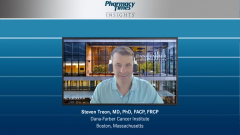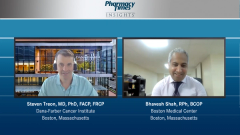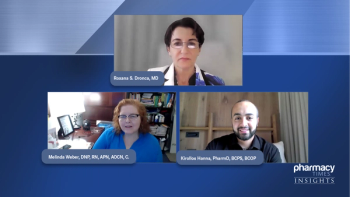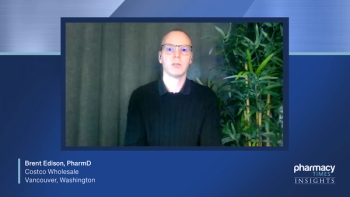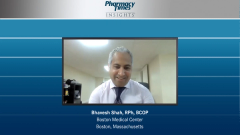
Waldenstrom Macroglobulinemia Vs Other Lymphomas
The characteristics of Waldenstrom macroglobulinemia that distinguish the disease from other types of lymphomas.
Episodes in this series

Bhavesh Shah, RPh, BCOP: Hello, and welcome to this Pharmacy Times® Insights program. We’re going to be talking about treatment innovations in Waldenstrom macroglobulinemia. My name is Bhavesh Shah. I’m the associate chief pharmacy officer for specialty and hematology oncology pharmacy at Boston Medical Center. Joining me today in this discussion is Dr Steven Treon, who’s world-renowned in Waldenstrom macroglobulinemia, a professor at Harvard Medical School, and a director at the Bing Center for Waldenstrom's Macroglobulinemia at Dana-Farber Cancer Institute in Boston, Massachusetts, right down the street. Welcome, Dr Treon.
Today, we’re going to be talking about several topics pertaining to the treatment of Waldenstrom macroglobulinemia. We’ll discuss the unmet needs regarding the treatment, the potential use of BTK [Bruton tyrosine kinase] inhibitors, and the critical role the pharmacist plays in the treatment of patients with Waldenstrom macroglobulinemia.
We could talk for hours with Dr Treon about this topic, but we have a short amount of time. We’ll talk a little about the pathophysiology of Waldenstrom macroglobulinemia in regard to the management of the clinical problems that we see with accumulation of IgM [immunoglobulin M] protein in the intravascular space and the key factors that are utilized in treating patients and initiating treatments. Why don’t you start that off, Dr Treon? Can you talk about some of those things?
Steven Treon, MD, PhD, FACP, FRCP: This is a good question. For the pharmacist’s knowledge, Waldenstrom macroglobulinemia is a type of lymphoma. It’s fairly uncommon. We see about 3000 new cases per year in the United States. It sits between classical lymphoma and myeloma. The cell type is more of what we call a lymphoplasmacytic lymphoma. It shares features of both lymphoma and myeloma. As a result, the therapies we typically use are meant to cover the clone that transcends both mature B cells and plasma cells. Classically, with chemoimmunotherapy, we’ve had to combine drug therapy that goes after lymphoma along with drug therapy that goes after myeloma so we can cover the entire clone.
Bhavesh Shah, RPh, BCOP: From my understanding, the signs and symptoms patients usually present with include epistaxis, headaches, and impaired vision, which are related to hyperviscosity syndrome, which is one of the classic signs of Waldenstrom macroglobulinemia. Are there any other signs and symptoms that pharmacists should be aware of?
Steven Treon, MD, PhD, FACP, FRCP: The interesting part about this disease is patients can present in many different ways. You’ve already alluded to the problems associated with having too high of a protein, which can cause all kinds of manifestations. The blood becomes thick and then you end up with hyperviscosity syndrome. You can have the IgM antibody made by the tumor cells act as autoantibodies. You can have renal failure because of the deposition of those antibodies. You can have amyloidosis. You can present with classical cytopenias. You can also present with bulky masses, and even disease that gets into the CNS [central nervous system] space.
It’s really important from the pharmacy perspective to keep in mind that there can be multicompartment disease. Sometimes the dosimetry of some of the therapies that we use, and even the therapies themselves, can be very much affected by what compartment we’re looking to treat. Sometimes we have to treat the patient systemically and go after all compartments. But sometimes the problem is in the CNS space, so you have to start thinking about therapies that cross the blood-brain barrier.
Bhavesh Shah, RPh, BCOP: Absolutely. We know that Bing-Neel syndrome is one of the disease manifestations that you have with Waldenstrom macroglobulinemia.
Transcript edited for clarity.
Newsletter
Stay informed on drug updates, treatment guidelines, and pharmacy practice trends—subscribe to Pharmacy Times for weekly clinical insights.

